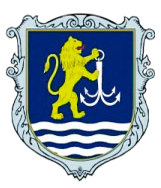THE USAGES OF CYBERSECURITY IN MARINE COMMUNICATIONS
Abstract
The reliability of marine communications is crucial to ensuring the safety and success of maritime activities. As the marine industry becomes more dependent on digital technology and the internet, it must contend with formidable cybersecurity threats. This article surveys the recent intellectual contributions to the burgeoning topic of maritime communication cybersecurity. This article’s major focus is the use of AI and cryptographic techniques to enhance data security. AI will improve marine communication security using algorithms and machine learning, while cryptographic methods guarantee data privacy and authenticity. This article also highlights the need for risk assessment procedures and certification programs for cybersecurity professionals. Providing established techniques for risk management and improving overall cybersecurity posture, these components are especially important within the Internet of Things (IoT) ecosystem widespread in the marine industry. In order to improve cybersecurity education at the collegiate level, this paper presents a new conceptual framework. It highlights the need to prepare the next generation of maritime workers to recognize and respond to cybersecurity risks by providing them with the education they need to protect themselves from cybercrime. New strategies forwarding against cyberattacks at sea are being investigated, including complexity-thinking techniques and open-source intelligence (OSINT). The debate finishes by stressing the need for standardized cybersecurity measures and incorporating lessons from organizational science research in creating a safer marine communication network.
Downloads
References
2. Progoulakis, I., et al., Cyber-Physical Security for Ports Infrastructure. The International Maritime Transport and Logistic Journal, 2022.
3. Canepa, M., et al., Assessing the Effectiveness of Cybersecurity Training and Raising Awareness Within the Maritime Domain. 2021.
4. Howard, T.D. and J.d.A.d. Cruz, Like the Sea, So Cyberspace: A Brief Exploration of Establishing Norms Through a Maritime Lens. Journal of Advanced Military Studies, 2022.
5. Androjna, A., et al., Assessing Cyber Challenges of Maritime Navigation. Journal of Marine Science and Engineering, 2020.
6. Fowler, S.J., K.A. Joiner, and E. Sitnikova, Assessing Cyber-Worthiness of Complex System Capabilities Using MBSE: A New Rigorous Engineering Methodology. 2021.
7. McGillivary, P., Why Maritime Cybersecurity Is an Ocean Policy Priority and How It Can Be Addressed. Marine Technology Society Journal, 2018.
8. Yang, Z., et al., Use of Fuzzy Evidential Reasoning in Maritime Security Assessment. Risk Analysis, 2009.
9. Matheu, S.N., et al., A Survey of Cybersecurity Certification for the Internet of Things. Acm Computing Surveys, 2020.
10. Khader, M., M. Karam, and H. Fares, Cybersecurity Awareness Framework for Academia. Information, 2021.
11. Ellefsen, A.L., et al., A Comprehensive Survey of Prognostics and Health Management Based on Deep Learning for Autonomous Ships. Ieee Transactions on Reliability, 2019.
12. Mullet, V., P. Sondi, and E. Ramat, A Review of Cybersecurity Guidelines for Manufacturing Factories in Industry 4.0. Ieee Access, 2021.
13. IMO, Guidelines on maritime cyber risk management (MSC-FAL.1/Circ.3). International Maritime Organization. 2020.
14. Hopcraft, R. and K.M. Martin, Effective maritime cybersecurity regulation – the case for a cyber code. Journal of the Indian Ocean Region, 2018. 14(3): p. 354-366.
15. Adriaensen, A., W. Decré, and L. Pintelon, Can Complexity-Thinking Methods Contribute to Improving Occupational Safety in Industry 4.0? A Review of Safety Analysis Methods and Their Concepts. Safety, 2019.
16. Kim, N.-H. and S. Lee, Cybersecurity Breach and Crisis Response: An Analysis of Organizations’ Official Statements in the United States and South Korea. International Journal of Business Communication, 2018.
17. Dhirani, L.L., E. Armstrong, and T. Newe, Industrial IoT, Cyber Threats, and Standards Landscape: Evaluation and Roadmap. Sensors, 2021.
18. Dalal, R.S., et al., Organizational Science and Cybersecurity: Abundant Opportunities for Research at the Interface. Journal of Business and Psychology, 2021. 19. Suryotrisongko, H. and Y. Musashi. Review of Cybersecurity Research Topics, Taxonomy and Challenges: Interdisciplinary Perspective. in 2019 IEEE 12th Conference on Service-Oriented Computing and Applications (SOCA). 2019.
20. Mcgillivary, P., Why Maritime Cybersecurity Is an Ocean Policy Priority and How It Can Be Addressed Marine Technology Society Journal, 2018.
21. Stevens, C., Assembling cybersecurity: The politics and materiality of technical malware reports and the case of Stuxnet. Contemporary Security Policy, 2020. 41(1): p. 129-152.
22. Malatji, M., S. Von Solms, and A. Marnewick, Socio-technical systems cybersecurity framework. Information & Computer Security, 2019. 27(2): p. 233-272.
23. Pastor-Galindo, J., et al., The Not Yet Exploited Goldmine of OSINT: Opportunities, Open Challenges and Future Trends. Ieee Access, 2020.





